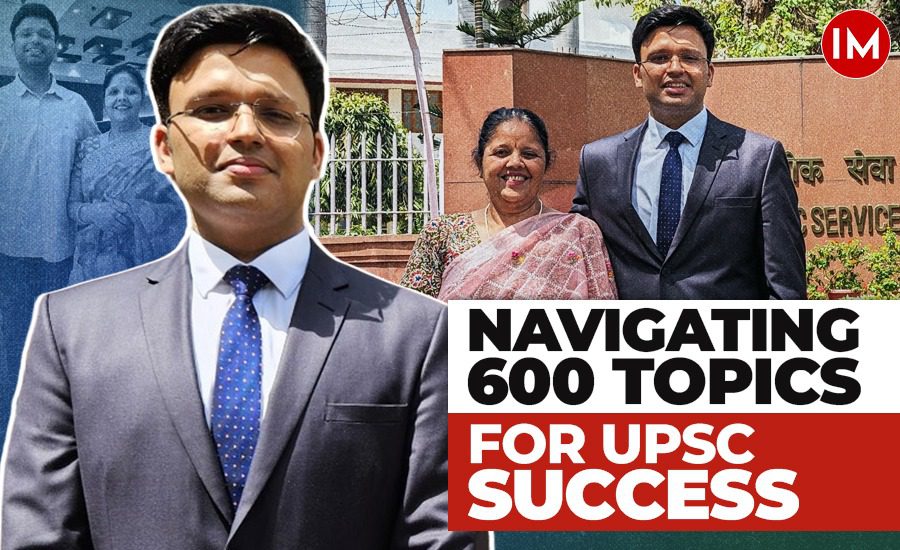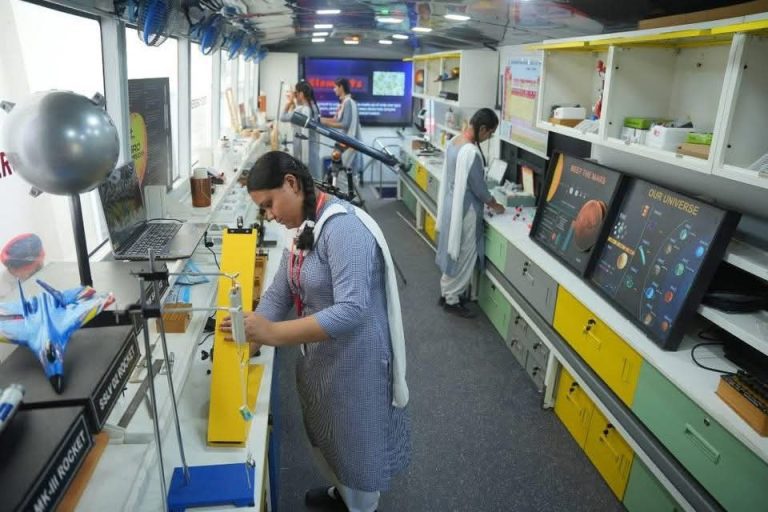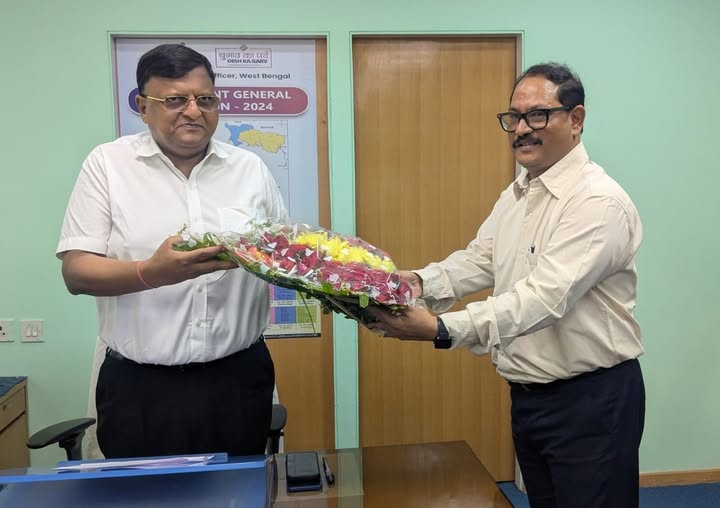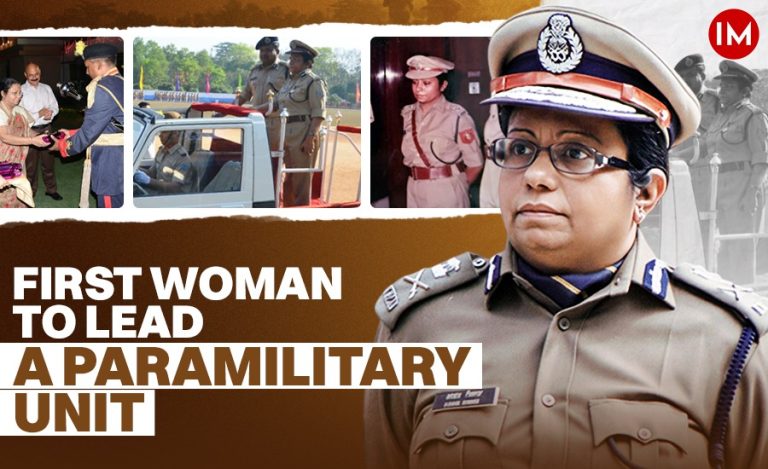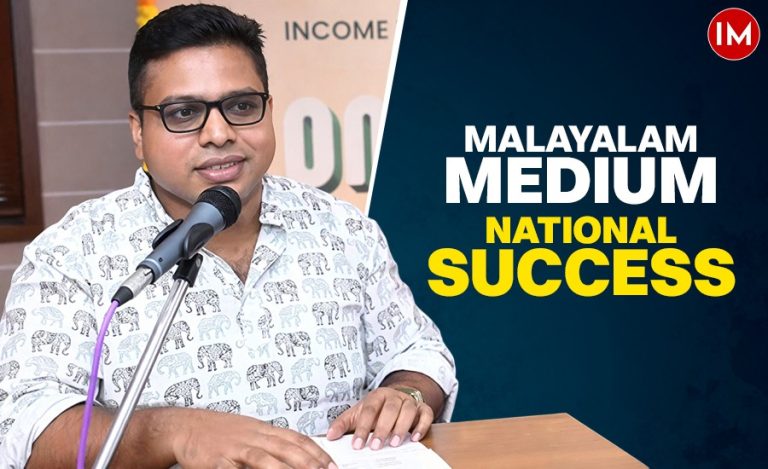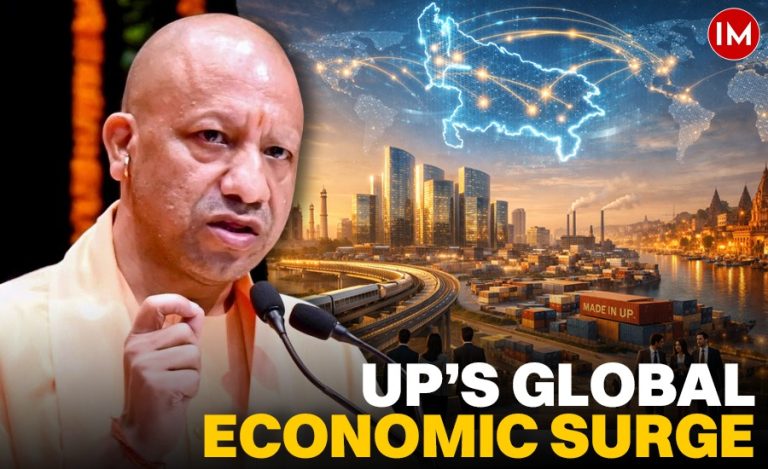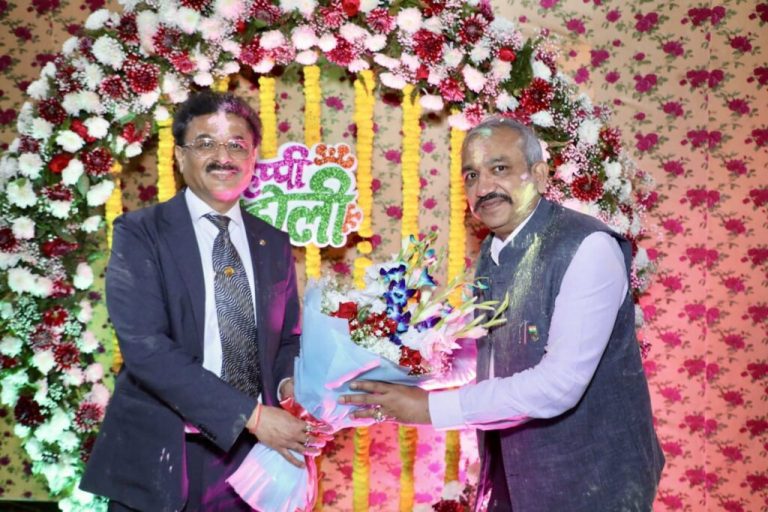Struggling for his family is not new to Rishabh Jain. He has witnessed it firsthand – from his father to his mother and beyond. In the bustling lanes of Saharanpur, UP, where perseverance and resilience run as deep as the roots of its ancient trees, Rishabh’s journey unfolded – a narrative woven with struggle, determination, and the unyielding support of a devoted mother. After the loss of his father in 2004, who had been bedridden for 16 years, the mantle of familial responsibility fell on his mother, a retired professor who exemplified strength and resilience. From these challenges, Rishabh emerged not just with a vision for success but with a commitment to significantly serve his country.
Rishabh failed the UPSC exam four times, but it was in his genes to never be afraid of those failures. Despite such setbacks over four years, his resolve didn’t waver. Finally, he achieved what he wanted as he cracked the UPSC CSE-23 with an impressive rank. His story is an inspiration to every aspiring UPSC candidate that resilience, backed by the support of loved ones and unwavering determination, can indeed turn dreams into reality.
Speaking exclusively with Indian Masterminds, Rishabh narrated his inspiring journey.
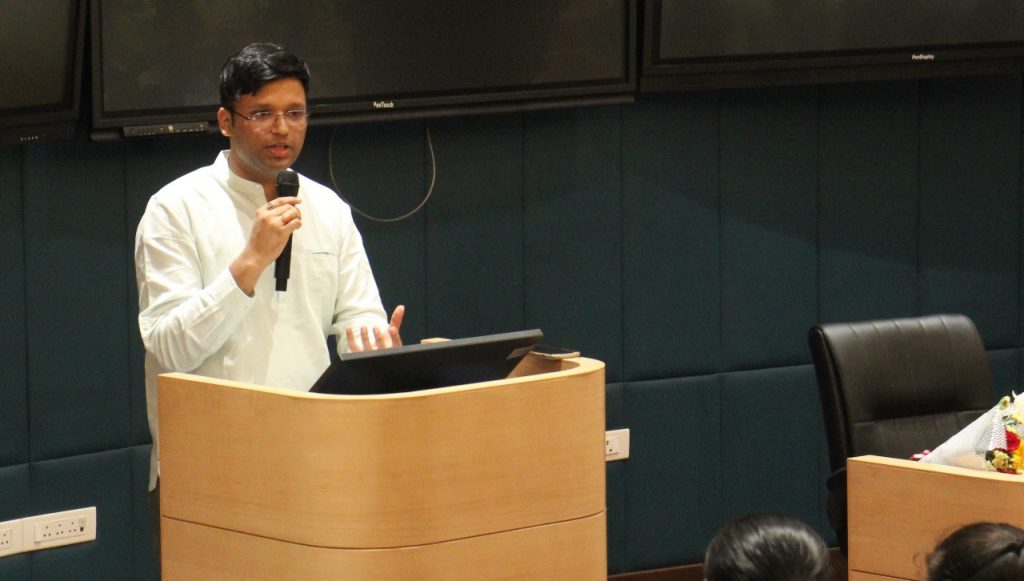
FIVE ATTEMPTS, ENDLESS DETERMINATION: JOURNEY SO FAR
He started preparing for civil services in 2018 while working as a software engineer. He made his first attempt at the UPSC CSE in 2019 but did not even pass the prelims. In his next attempt in 2020, things did not change, and he again failed at the preliminary level.
In his third and fourth attempts in UPSC 2021 and 2022, he reached the mains round but did not get a call for an interview.
Finally, in his fifth attempt in UPSC 2023, he cracked the exam with an All India Rank of 377. He might get into the IRS.
After failing in his fourth attempt, he joined a job again, and thus, he took his fifth prelims in 2023 while working.
How does he handle failures? He said, “My mother always told me that many different factors are involved if you want to be selected in any exam. It’s not just hard work; many factors may not even be controllable and are not in your hands. But if you have set a goal for yourself, then fight for it until the end.”
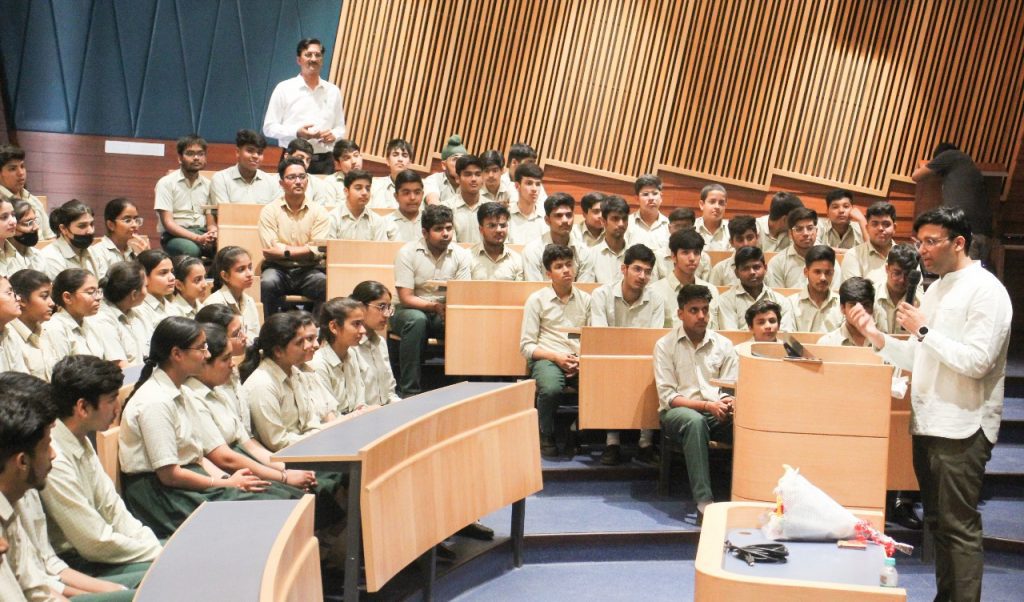
BACKGROUND
He originally hails from Saharanpur, UP. His father passed away in 2004 after being bedridden for 16 years due to paralysis. His mother, a retired professor, is the backbone of the family. After his father’s passing, all the responsibility fell on his mother, which she carried out very efficiently, taking care of the entire family. She always motivated Rishabh to pursue whatever he wanted in his own way and never to be afraid of any failures.
He completed his basic schooling up to the 12th grade in his hometown. Then, he earned a degree in Computer Science Engineering from Jaypee Institute of Information Technology. After this, he joined a tech startup in Delhi and worked for almost eight months before leaving the job to prepare better for the civil services exams.
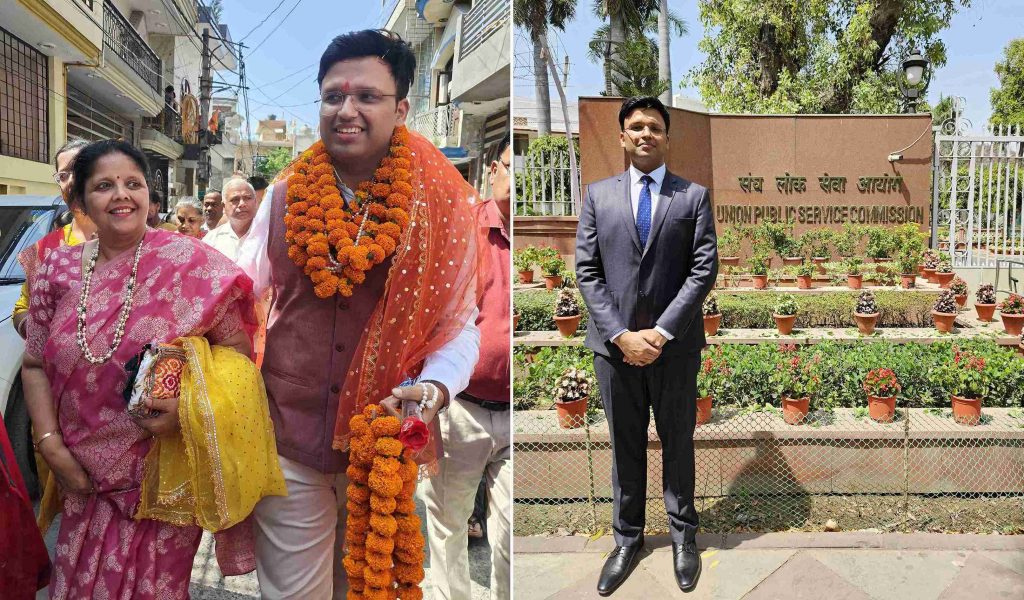
UPSC
Rishabh’s strategy for UPSC preparation was target-based and highly disciplined. He believes that the UPSC exam tests what an administrator needs to do on the ground, requiring them to deliver maximum results with limited resources. This mirrors the demands of the exam itself. To succeed, one must study the exam syllabus and previous years’ questions (PYQs) every day. Missing the core demands of the exam will result in not being selected.
His strategy included trusting a single resource and studying it at least 2 to 3 times. After that, he studied the PYQs related to those topics or subjects. Then, he would review the resource again and make short, concise notes. Following this, he started practicing answer writing. According to Rishabh, there are almost 600 topics in the UPSC CSE that aspirants need to prepare for the exam.
“If you have short notes of two pages for every topic, then you have a very good value addition for each topic in this exam. So systematically maintaining every topic is crucial,” he said.
Rishabh believes that it is very important for aspirants to understand the breadth of this examination. If you have set a target of three days for any of your topics, then complete it in three days. If you extend it to a fourth day, you will fall behind and miss some other topic. Therefore, keep your resources limited.
For the mains, it’s all about how much answer writing you do. He admits that in his earlier attempts, he did not write many test papers. But in this attempt, he wrote more than 20 full-length tests at centers.
He said, “You need to change your approach. Most aspirants study as they did for their 12th exams, where they study the book and answer the questions. But here, it’s different. You have to study books, generate your knowledge from them, and develop a fresh approach.” His optional subject was Political Science and International Relations (PSIR).
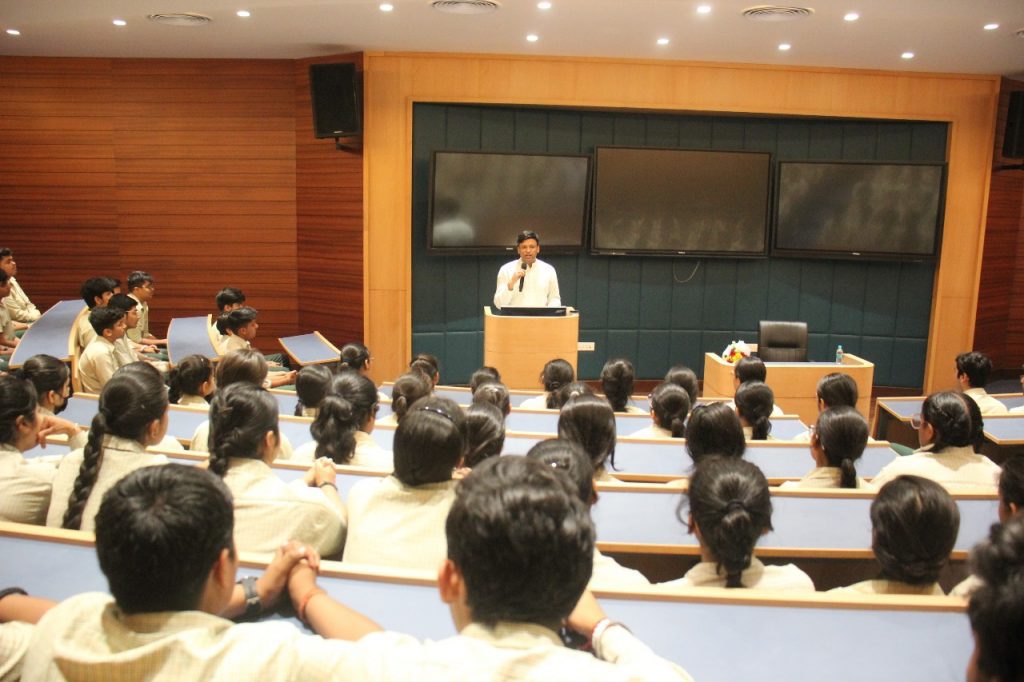
INTERVIEW
His interview lasted around 35 minutes, and he was thoroughly grilled. There were questions from his Detailed Application Form (DAF) and background, especially focusing on his optional subject in UPSC, PSIR. He was asked detailed factual questions about international relations, such as:
What is the Warsaw Pact? Which countries were included in it? Which countries that were in the Warsaw Pact are now in NATO? Name the new countries included in NATO in the last decade.
He was also asked questions about the World Trade Organization (WTO) and international trade. A few questions were related to his background in e-commerce.
He was also grilled on the Voter Verified Paper Audit Trail (VVPAT). A member asked – What is VVPAT, and where is it connected to an Electronic Voting Machine (EVM)? What are the VVPAT cases in the Supreme Court? Who filed these cases? What percentage of VVPAT is verified currently? If five booths are being verified, why only five?
Another member asked when VVPAT was introduced in India. Rishabh replied that VVPAT was first introduced in a constituency in Nagaland in 2013. The member was not satisfied with the answer and asked him to think again. Rishabh repeated the same answer, but the member insisted on the correct answer. Finally, the chairman of the board confirmed that Rishabh was correct. “The members were trying to create pressure and check my approach and confidence in such situations. It was one of the highlights of the interview,” he said.
An interesting question was posed by a member: “If a person who owns an island demands the status of an independent country for it, can we give it the status of an independent country? If you have read PSIR, then answer accordingly.” Rishabh replied that there are certain criteria for statehood and elaborated on those criteria.
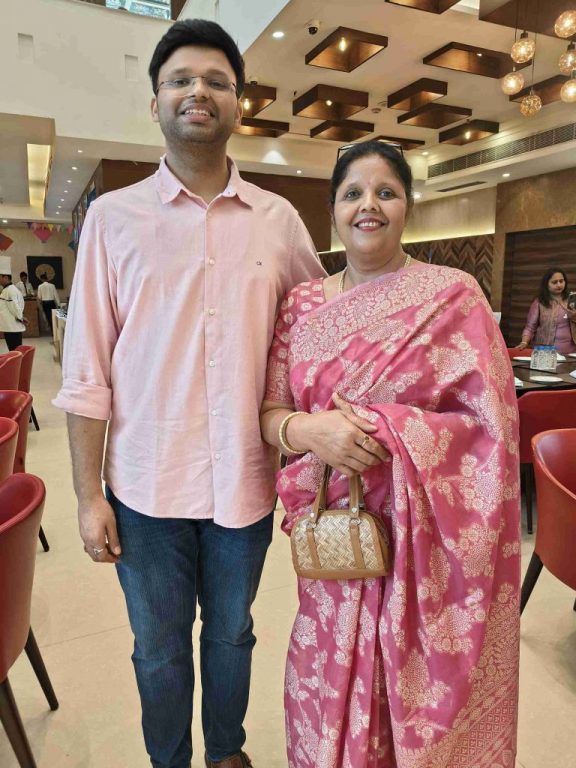
MESSAGE
Giving a message to aspirants, he said, “First, aspirants need to understand that the UPSC process is such that despite your best efforts, you can fail at any stage or your attempts might get exhausted. But still, trust yourself and follow your strategy and a specific method or process to reach your goal. One day you might achieve success. Even if you don’t, you will still do better in your life.”

